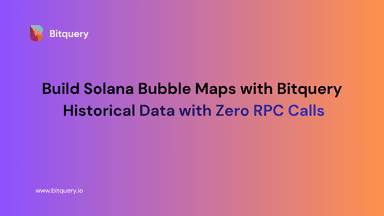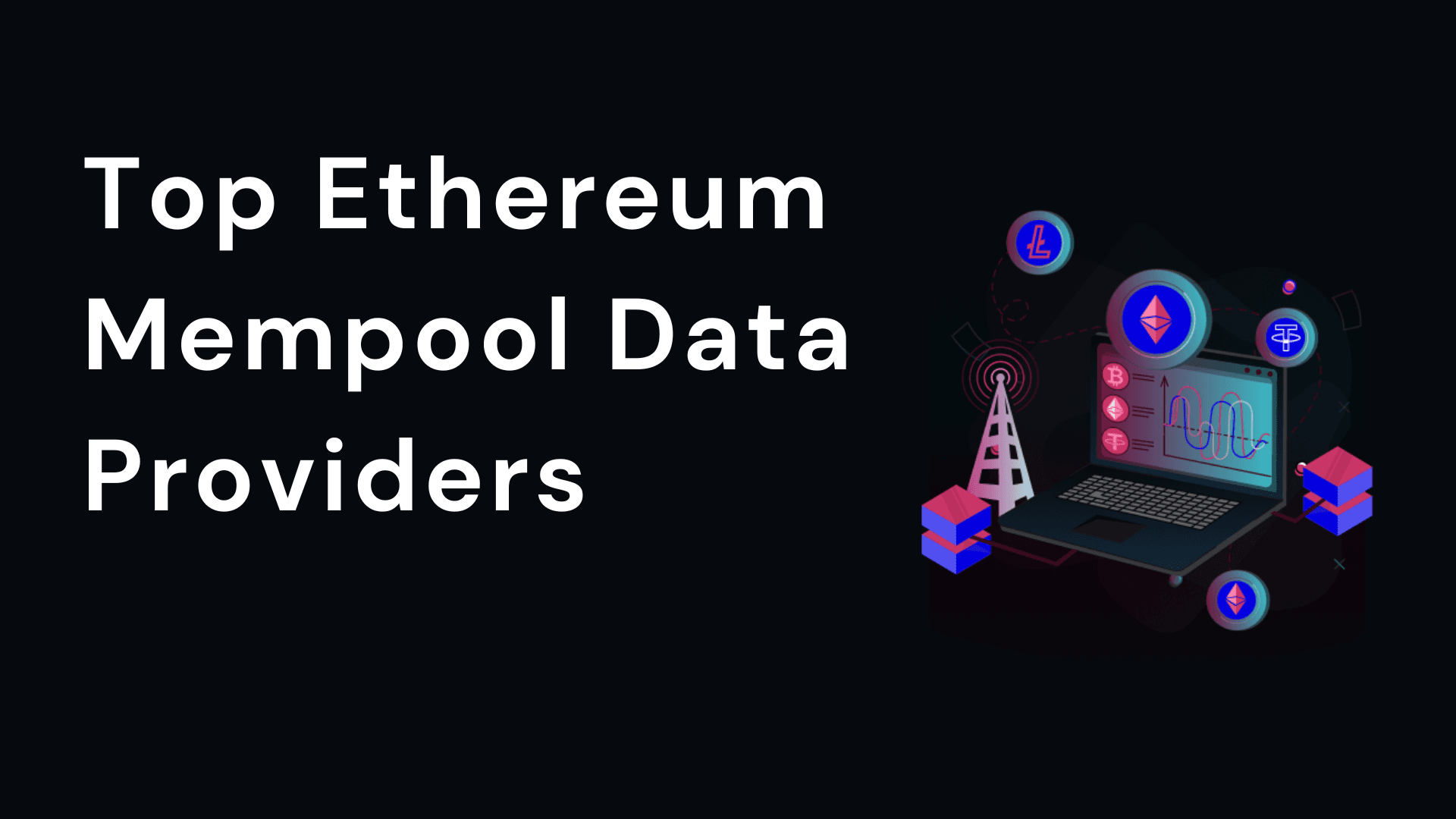
Top Ethereum Mempool Data Providers
Have you ever wondered why your Ethereum transaction takes some time to confirm? The answer lies in the fact that your transaction is patiently waiting to be confirmed in the Ethereum Mempool. The Mempool, a fascinating and integral part of the Ethereum blockchain, plays a crucial role in transaction processing. In this article, we will delve deeper into what the Ethereum Mempool is and explore the top data providers that offer access to Mempool data.
What is Mempool?
Since there is a limit to how many transactions can be included in a single block, the blockchain needs a mechanism to temporarily store extra transactions that are yet to be confirmed. This crucial mechanism is known as the Mempool.
Here's how it works: When you broadcast a transaction to the network, it first enters the Mempool. Here, it patiently waits until a miner or validator includes it in a block. While all unconfirmed transactions reside in the Mempool, miners and validators have the time needed for transaction prioritization, ordering, and constructing blocks.
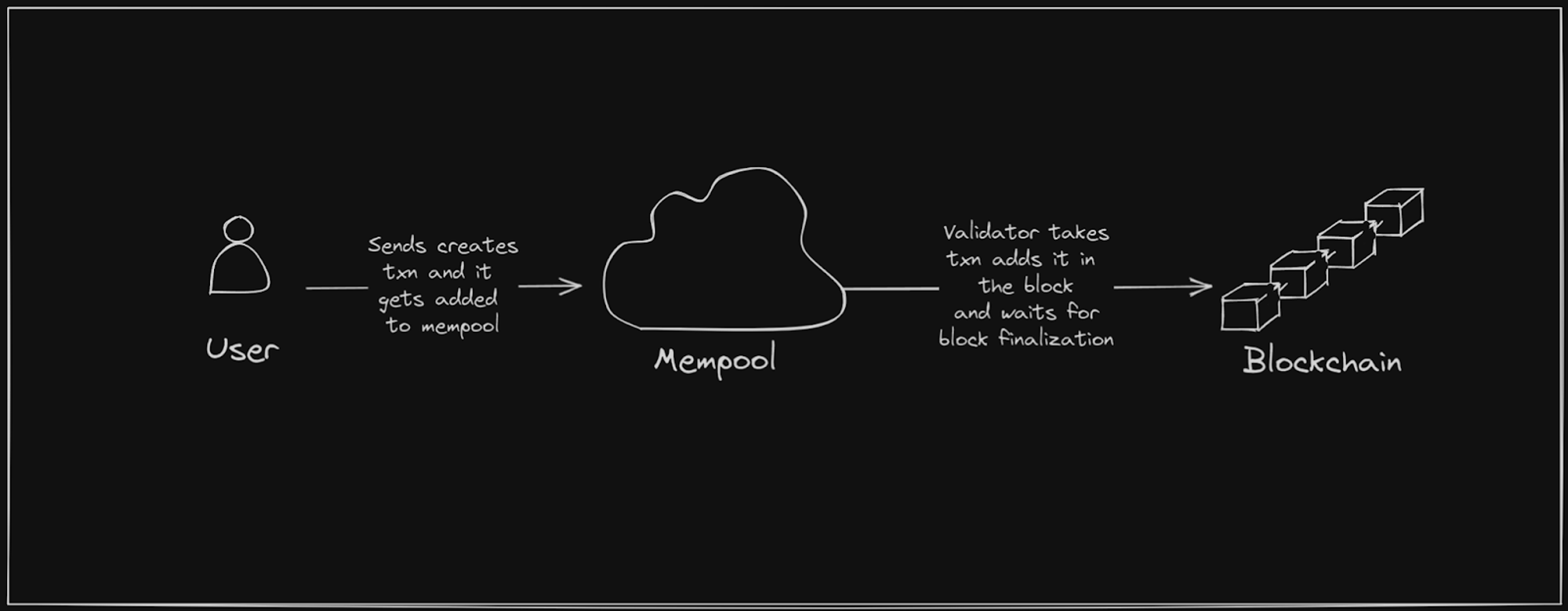
How to access Ethereum mempool data?
If you want to access data from the Mempool, there are two primary methods to consider:
- Using your node or a blockchain API
- Using a Mempool data provider
Now, let's look at both ways and think about the good and bad sides of each.
Getting Data Directly from Your Node
If you're running your own Ethereum node, you can directly query Mempool transactions. The steps to query these transactions depend on the execution client you're using.
For instance, if you're using Geth, which is a popular execution client, on your node, the Mempool is referred to as the "txpool". To access all the transactions within the transaction pool, you can make use of a JSON-RPC request using the “txpool_content” method.
Here are other execution clients and their JSON-RPC method to access transactions from the mempool of the node.
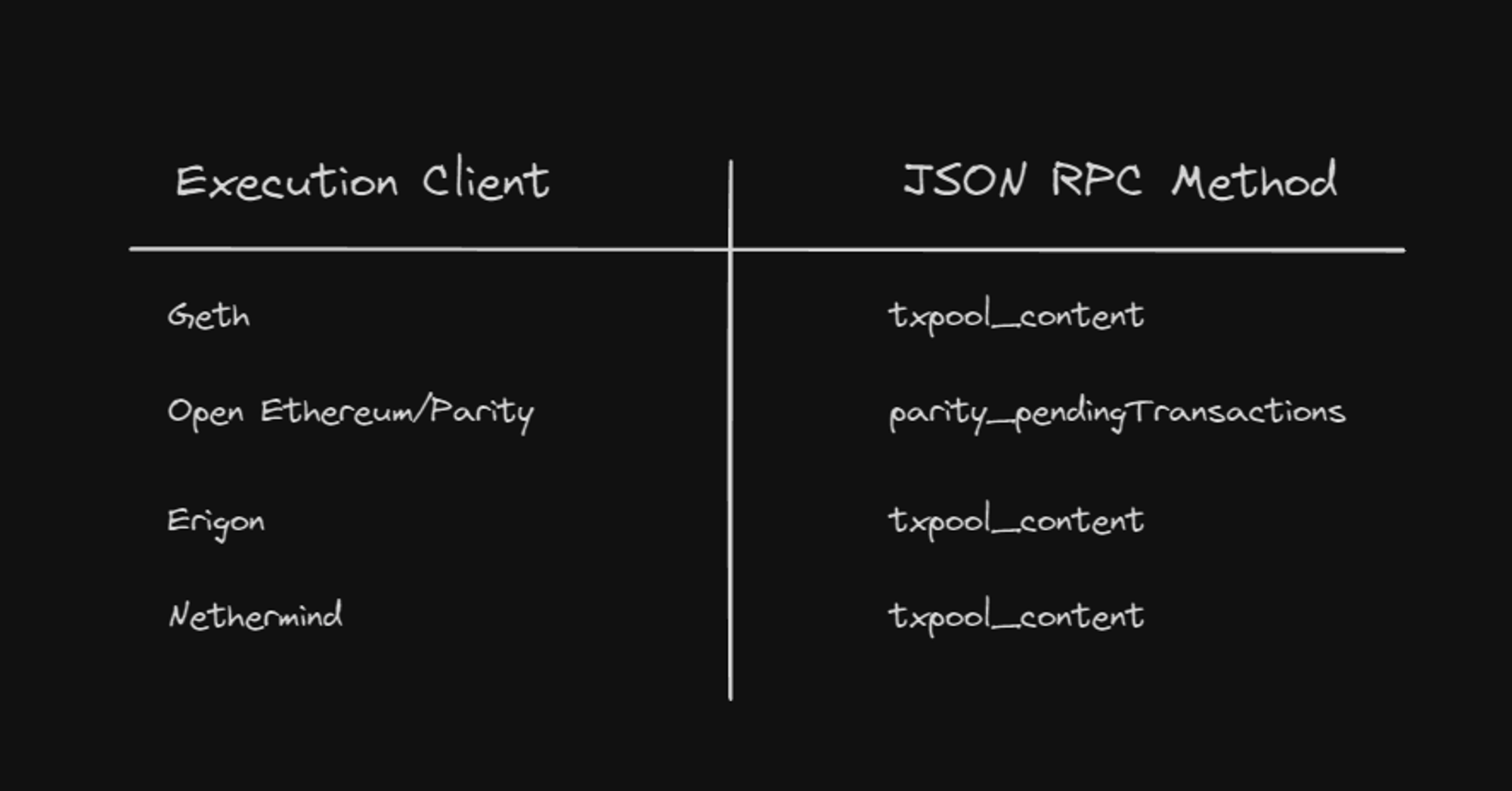
Limitations of querying mempool from an ethereum node
While this method gives you granular control over the data you retrieve, it has limitations.
Since multiple transactions are broadcasted simultaneously, the pending transactions in the Mempool of different nodes may vary. This means you might not have access to all pending transactions, and there may be some delays in receiving new ones.
Additionally, if you’re running your own node, it involves maintenance efforts.
Also Read: Top Uniswap APIs
Getting Mempool Data from Mempool Data Providers
Alternatively, you can access Mempool data through Mempool data providers. These providers simplify the process with easy API integration and eliminate the need to maintain your own node.
Let's now explore some of the top Ethereum Mempool data providers:
Bitquery:
Bitquery, an indexed blockchain data provider, offers the Ethereum mempool API. This service allows developers and searchers to access a continuous stream of newly broadcasted transactions in real-time with very low latency. It allows users to query various details of newly broadcasted transactions, like tracking token transfers and monitoring decentralized exchange (DEX) trades from protocols like Uniswap, Sushiswap, Curve, Balancer, and many more.
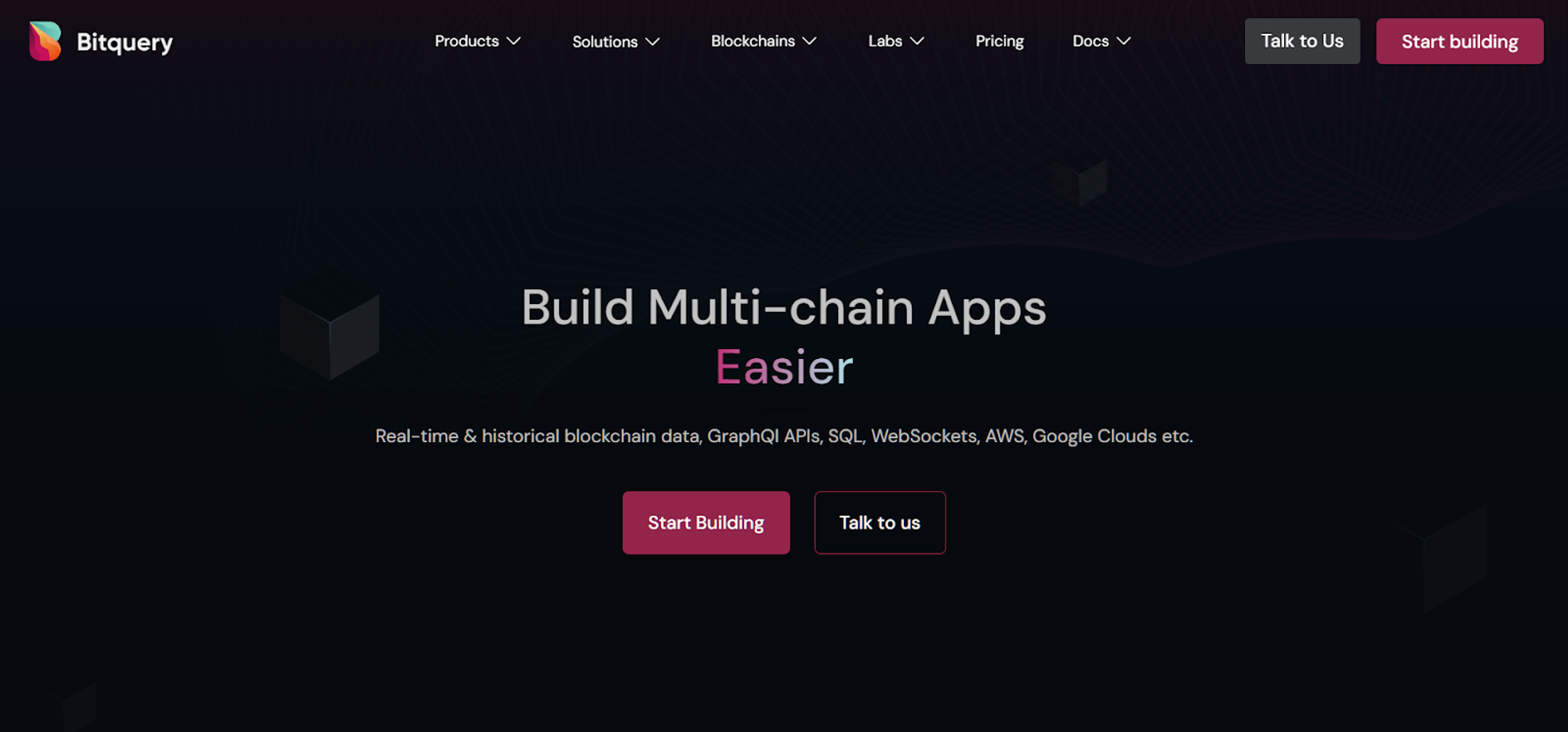
Features:
- Indexed Broadcasted Transaction: With indexed broadcasted transactions, developers and researchers can monitor transfers for specific tokens or DEX trades from 100+ protocols. With all the broadcasted transactions being indexed, it reduces work on your end of filtering data to spot arbitrage opportunities or network trends.
- GraphQL Support: Bitquery provides the data using GraphQL subscriptions, using the graphql-websocket protocol in the background. GraphQL subscriptions enable developers to request specific data they require, following the same user-friendly querying approach as regular GraphQL APIs.
- Access to historical broadcasted transactions: With the Ethereum mempool API, developers have access to transactions broadcast in the past.
- Available for Blockchain Network: Bitquery’s mempool API currently supports Ethereum mainnet.
BloXroute:
BloXroute is a layer-0 infrastructure that aims to make blockchain networks faster using its infrastructure. Along with providing this infrastructure, BloXroute also provides different services like Mempool services, Block streaming, Solana trading API, etc.
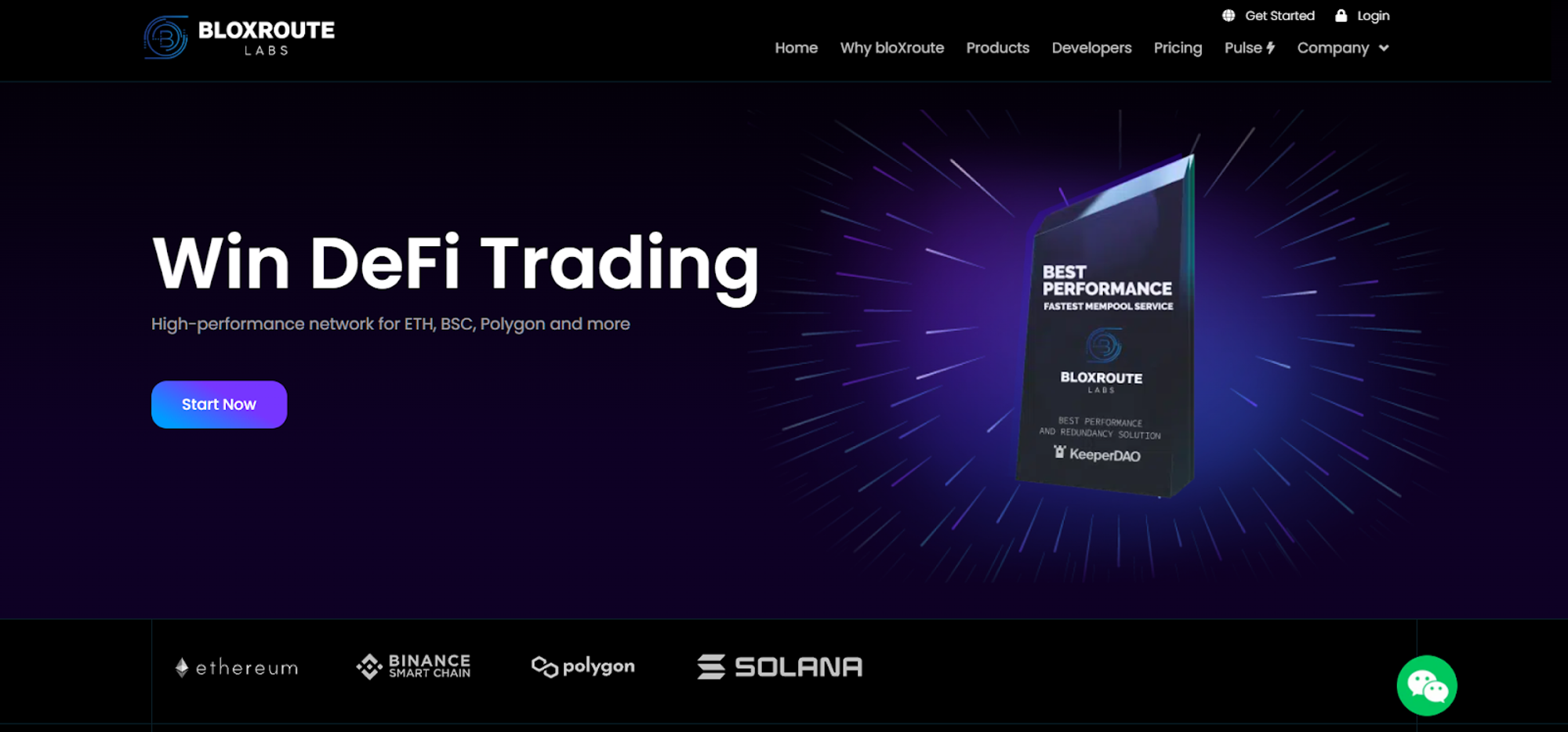
Features:
- Mempool Transaction Feed: BloXroute offers this service via a JSON RPC endpoint within their Cloud API, allowing users to connect seamlessly to the nearest location for their application.
- Available for Blockchain Networks: The mempool services on both the Ethereum Mainnet and BSC Mainnet through BloXroute.
RPCFast:
RPCFast is a service that provides enterprise-level blockchain APIs for different blockchains like Ethereum, BNB, Polygon, and Velas. Along with providing the blockchain API, they also provide a mempool stream API and a transaction simulator API.
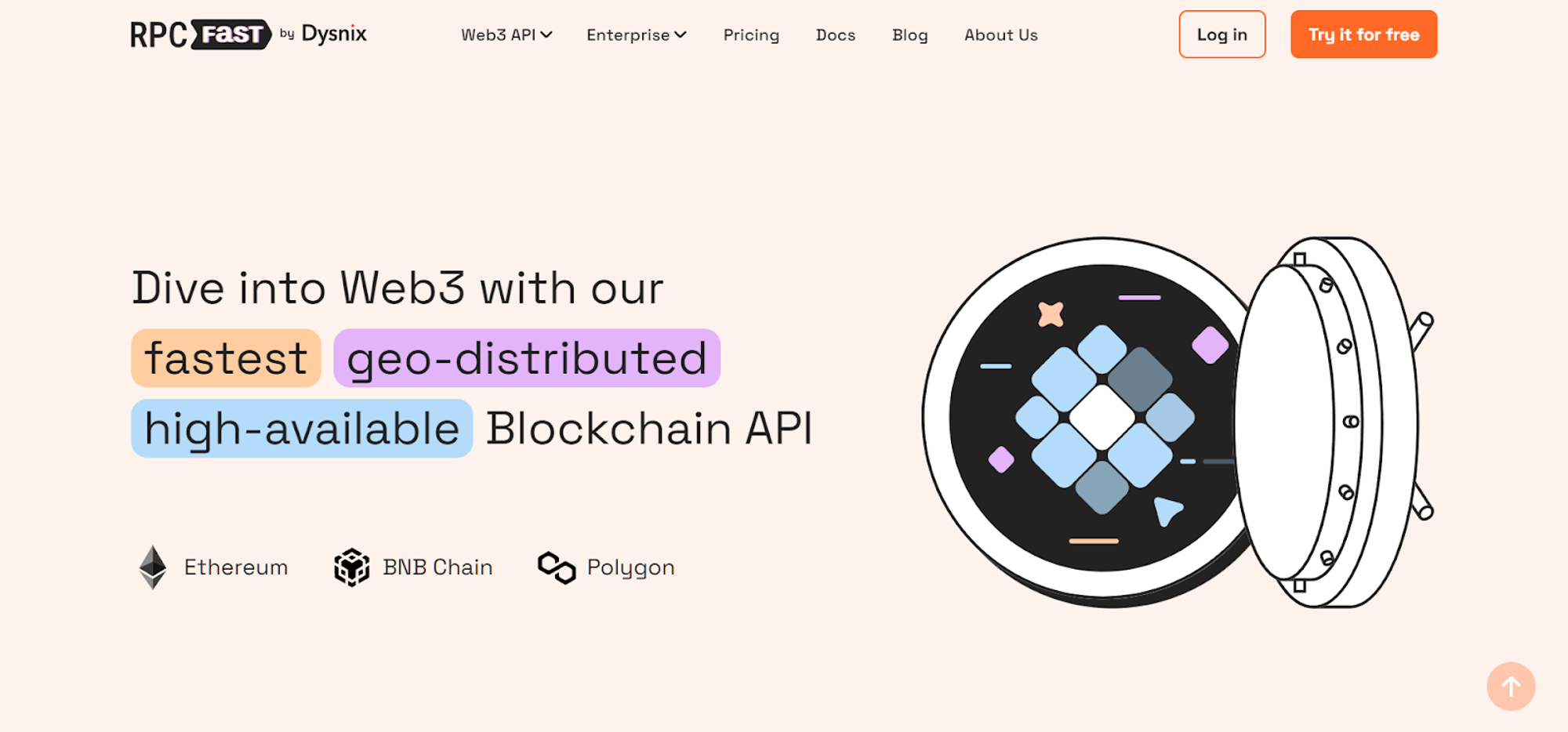
Features:
- Mempool Transaction Feed: RPCFast provides pending transactions through the JSON RPC endpoint. With the “eth_newPendingTransactionFilter” filter, you are able to get notifications about new pending transactions.
- Transaction Simulator API: This API allows you to execute transactions in the EVM using the real state and get necessary data about their execution.
- Available for Blockchain Networks: The API is available for Ethereum, BNB Chain, Polygon.
Blocknative:
Blocknative is an on-chain and mempool data provider. It allows developers to monitor mempool transactions using webhooks and websockets. Blocknative also provides Mempool explorer for developers to see all the mempool data on a dashboard.
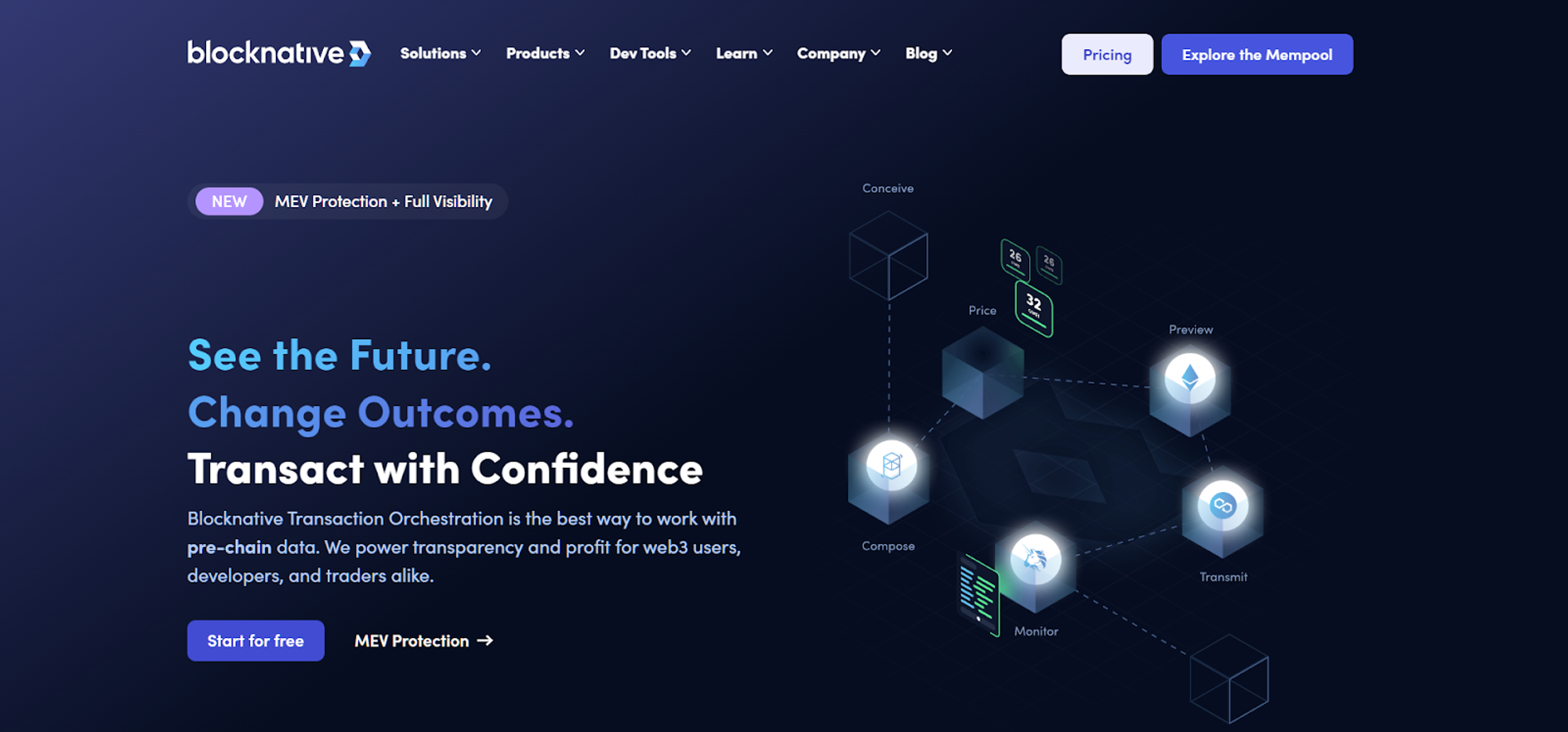
Features:
- Mempool API: It is a service that provides transaction monitoring using webhooks. Whenever a new ethereum transaction is available, it sends a POST request to the webhook URL.
- Mempool SDK: Blocknative SDK provides an alternative way to get notification messages using JavaScript with a simple WebSocket's library.
- Available for Blockchain Network: Blocknative supports Ethereum, Goerli (Ethereum testnet), Gnosis and Polygon (Matic).
Eden Network:
Eden network is a multichain infrastructure where it aims for minimizing negative effects of MEV on blockchain network. Along with building this infrastructure, they have introduced a Ethereum mempool streaming service. It is currently in the alpha.
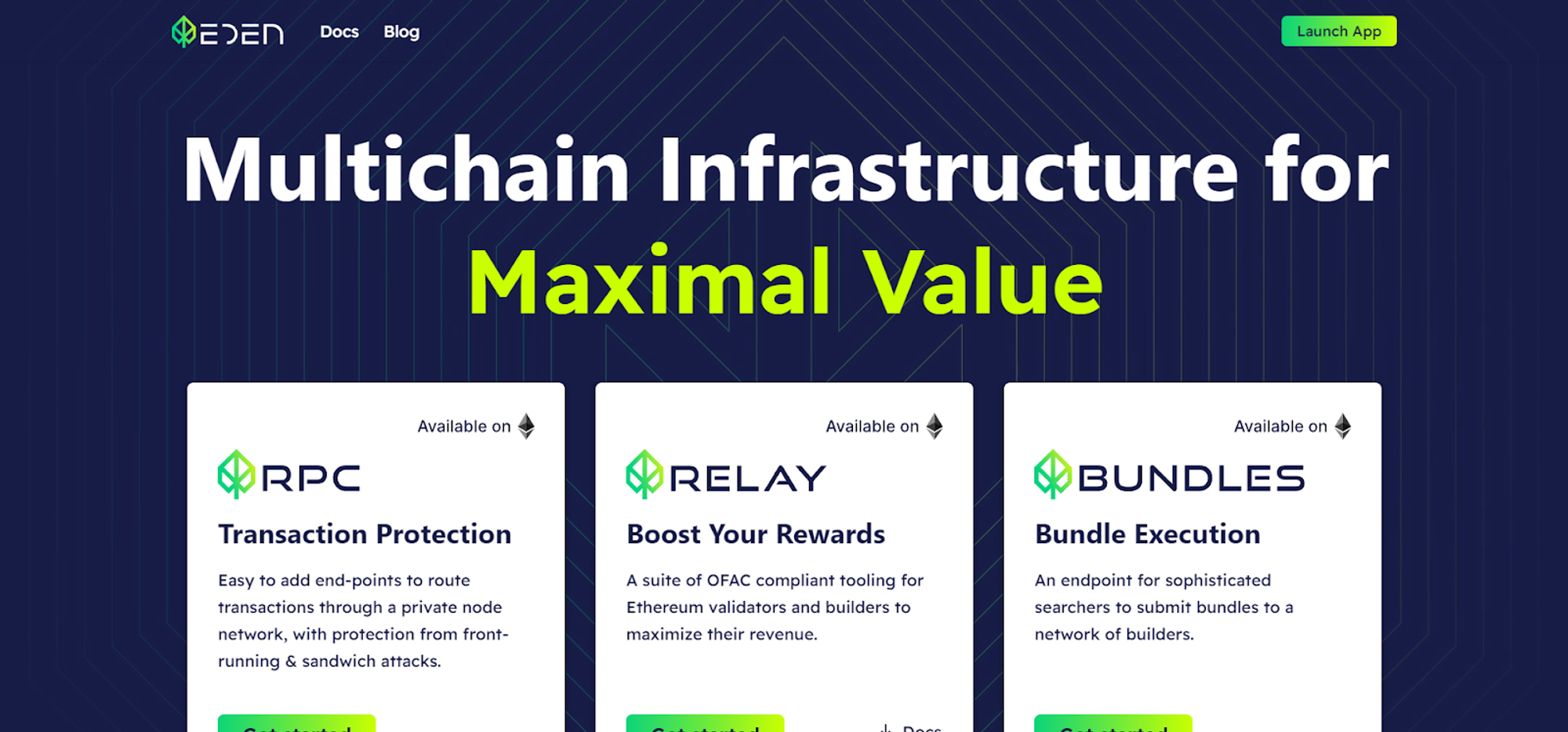
Features:
- Mempool Streaming Service: Service that allows MEV searchers and block builders to get access to Ethereum mempool data for spotting MEV opportunities and build blocks quickly.
- Available for Blockchain Network: Mempool streaming service is available for Ethereum mainnet.
Also Read: Top SushiSwap APIs
Limitation with using Mempool data providers
One limitation here is that you become reliant on a service provider, similar to relying on an RPC provider in the first method. However, most Mempool data providers strive to offer reliable services, making this a better option for the majority of users.
Importance of Choosing Right Data Provider
When selecting a data provider for accessing Mempool data, your choice should be guided by various data criteria and your specific needs. Here are the factors to take into account during your selection process:
-
Data Accuracy: Mempool data is dynamic, making data accuracy crucial. Outdated data can significantly impact your operational performance.
-
Data Delay: Mempool data is often time-sensitive, with limited time for reaction. Therefore, minimal data delay is essential when choosing a data provider.
-
Reliability and Uptime: Select a provider with a proven track record of reliability and minimal downtime to ensure uninterrupted access to mempool data.
-
Support Documentation: A comprehensive service documentation with a wide range of examples is valuable when making your choice.
-
API and Integration Support: Your data provider choice should align with your integration needs. Providers offer different integration options such as websockets, JSON RPC, or webhooks. Your decision should be based on your application's requirements and capabilities.
-
Historical Data: While the mempool is ever-changing, having support for historical data may still be worth considering for your specific use case.
-
Customization and Filtering: Given the diversity of transactions in the mempool, filtering capabilities are essential. However, it's important to carefully weigh the pros and cons of adding additional filtering layers. While they can enhance application performance, they may also introduce complexity. Your application's design should determine the extent of filtering needed.
Also Read: How to Track Liquidity for Token Pairs on Uniswap
Usecases of Mempool Data
Mempool is a highly dynamic environment with constant activity. Mempool data serves various purposes and offers variety of use cases. Let's explore some of these use cases to better understand the utility of mempool data.
- Arbitrage Strategies:
Arbitrage involves profiting from price variations of the same asset across markets. Mempool data is pivotal for real-time arbitrage. Few of many strategies are:
- MEV Bots (Maximal Extractable Value):
MEV reflects miners' potential profit from transaction order. MEV bots swiftly exploit opportunities, e.g., front-running. For instance, they detect a user's large token buy order, execute a higher-priced purchase ahead of it, and sell to the user for profit.
- Arbitrage Bots:
These bots identify price differences for an asset across exchanges and capitalize on them. Mempool data is crucial. For instance, if Bitcoin's price is lower on Exchange A than B, an arbitrage bot buys on A and sells on B for profit.
- Transaction Monitoring and Real-time Insights:
Mempool data allows you to closely monitor a wide range of transactions and keep track of their current status. Additionally, it provides invaluable real-time insights into the network's condition, encompassing transaction volumes, patterns, and trends.
- Network Congestion Prediction:
By analyzing mempool data, you can predict possible network congestion and prepare accordingly. Understanding the state of pending transactions in the mempool helps you predict and respond to fluctuations in network activity, improving your operations like batch withdrawals from centralized exchanges or applications like arbitrage bots.
Conclusion
In summary, the Ethereum Mempool is an important part of the Ethereum network, facilitating transaction processing. To access Mempool data, you can either query it from your node or use Mempool data providers like Bitquery, BloXroute, RPCFast, Blocknative, or Eden Network.
When selecting a provider, take into account elements such as data accuracy, minimal data latency, reliability, documentation availability, integration support, historical data access, and customization options. These factors are essential for enhancing the effective use of Mempool data in various applications, such as transaction monitoring, arbitrage strategies, network congestion prediction, and more.
Also Read: Arbitrum API - Tokens, NFTs, DEX, Balances & More
About Bitquery
Bitquery is your comprehensive toolkit designed with developers in mind, simplifying blockchain data access. Our products offer practical advantages and flexibility.
-
APIs - Explore API: Easily retrieve precise real-time and historical data for over 40 blockchains using GraphQL. Seamlessly integrate blockchain data into your applications, making data-driven decisions effortless.
-
Coinpath® - Try Coinpath: Streamline compliance and crypto investigations by tracing money movements across 40+ blockchains. Gain insights for efficient decision-making.
-
Data in Cloud - Try Demo Bucket: Access indexed blockchain data cost-effectively and at scale for your data pipeline. We currently support Ethereum, BSC, Solana, with more blockchains on the horizon, simplifying your data access.
-
Explorer - Try Explorer: Discover an intuitive platform for exploring data from 40+ blockchains. Visualize data, generate queries, and integrate effortlessly into your applications.
Bitquery empowers developers with straightforward blockchain data tools. If you have questions or need assistance, connect with us on our Telegram channel. Stay updated on the latest in cryptocurrency by subscribing to our newsletter below.
Subscribe to our newsletter
Subscribe and never miss any updates related to our APIs, new developments & latest news etc. Our newsletter is sent once a week on Monday.


